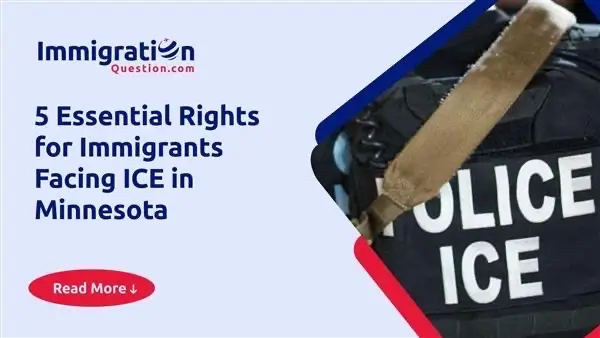How Do I Prove Extreme Hardship for a Fraud Waiver?
Suppose you’ve been found inadmissible to the U.S. because of fraud or misrepresentation. In that case, you’re not the only one—and you still have options. Many people encounter this issue each year, and while it’s serious, there is a legal solution available: the fraud waiver, also known as Form I-601.
To get it approved, you’ll need to prove that your removal (or being kept out of the country) would cause “extreme hardship” to a close U.S. relative. But what does that mean—and how do you show it?
Let’s walk through it together.
Q: What Exactly Is a Fraud Waiver?
A: It’s a legal pass that lets you ask for forgiveness from U.S. immigration authorities after being found inadmissible because you either lied or left out important information on your immigration application.
Some examples of misrepresentation include:
- Lying on a visa or green card application
- Using fake documents
- Not mentioning past immigration violations
- Claiming U.S. citizenship when you’re not a citizen
Without this waiver, that kind of dishonesty could get you banned from the U.S. permanently. That’s where Form I-601 comes in. It gives you a chance to explain your situation and ask to stay or get back into the country, if you’re already outside of it. However, you’ll need to go beyond simply saying, “I’m sorry.” You need to prove that a close relative—like a U.S. citizen or green card–holding spouse or parent—would truly suffer without you.
Q: Who Counts as a “Qualifying Relative”?
A: For a fraud waiver, the only people who count are your U.S. citizen or lawful permanent resident spouse or parent. That’s it.
- Kids don’t count as qualifying relatives (even though they matter deeply, of course).
- Neither siblings, grandparents, or close friends.
That said, if something impacts your children and that, in turn, makes things worse for your spouse or parent, that can be part of your case. It simply has to be tied back to one of the qualifying relatives.
Q: What Does “Extreme Hardship” Really Mean?
A: “Extreme hardship” doesn’t just mean it would be sad or brutal if you had to leave. It has to be more than what most families would go through in a similar situation. We’re talking about significant, long-term, life-changing difficulties—either:
- If you leave and your relative stays behind in the U.S. or
- If they’re forced to move with you to your home country
USCIS wants to see that your relative’s life would be severely affected, not just emotionally but possibly financially, medically, or otherwise.
Q: What Can Prove Extreme Hardship?
A: The more detailed and specific your case, the stronger it will be. Some of the most effective evidence includes:
Medical Issues
- Your spouse or parent has a serious medical condition.
- They rely on you for care or support.
- The treatment they need is not available or affordable in your home country.
Financial Dependence
- You’re the primary breadwinner.
- Losing you would result in loss of employment, eviction, or debt.
- Moving would mean loss of income or benefits.
Emotional Challenges
- Your family member has depression, anxiety, or PTSD diagnosed.
- Their mental state may get worse without you.
- Therapy notes or professional letters are invaluable.
Education
- If your family member is going to school or training, leaving the U.S. would disrupt that or end it completely.
Conditions in Your Country
- Political unrest, violence, discrimination, or extreme poverty in your home country.
- Danger of harm to your family members if they relocate there.
Any single one of these alone might not be adequate, but collectively, they can project a persuasive picture.
Q: What Kind of Evidence Should I Provide?
A: You must gather as much tangible documentation as possible. This could be:
- Medical records, prescriptions, doctors’ letters.
- Evaluations from therapists or mental health practitioners.
- Pay stubs, utility bills, leases, bank statements.
- Letters (affidavits) from friends, family, clergy, or work colleagues.
- School enrollment documents.
- News articles or reports discussing the circumstances in your home country.
The most persuasive item you can provide is a personal statement from your qualifying relative. Let them describe in their own words how your absence would impact their life.
Q: What If My Family Member Is Doing Okay Right Now?
A: That’s okay—you can still make a strong case by focusing on what could happen. Prospective or future hardships also count.
For example:
- A spouse may have to quit their job to care for kids
- Your absence could create mounting financial pressure
- Loneliness and emotional strain can build over time
It helps if a professional—such as a therapist or social worker—can assess the likelihood of future hardship based on your family’s situation.
Q: Can I Still Be Denied Even If I Show Hardship?
A: Yes, it’s possible. Even with clear hardship, USCIS looks at the overall situation, which includes:
- How serious the fraud or lie was
- When it happened
- If you’ve taken responsibility
- What you’ve done with your life since then
Engaging in community service, maintaining a steady job, and receiving support from local leaders can all help demonstrate that you’re a responsible individual who deserves another chance.
Q: Do I Need a Lawyer for This?
A: In short—yes. Fraud waivers aren’t easy, and a small mistake could cost you big. A reasonable immigration attorney can help you with the following:
- Understand whether you qualify
- Gather the proper evidence
- Write a strong legal and personal argument
- Avoid common pitfalls that can lead to denial
Every case is different, and your lawyer will know how to tell your story most compellingly.
Final Thoughts
Being found inadmissible for fraud can feel hopeless, but it doesn’t have to be the end. If your U.S. citizen or green card–holding parent or spouse would truly suffer without you, there’s still a way forward.
Yes, it can be a lot of work and paperwork, but it’s worth it. You’re not alone in this. If you’re unsure where to start, consider consulting with immigration attorneys who are familiar with waivers. They can help you through the process and support your family’s future.
Visit Immigration Question to speak with an attorney who has a deeper understanding of these situations.











